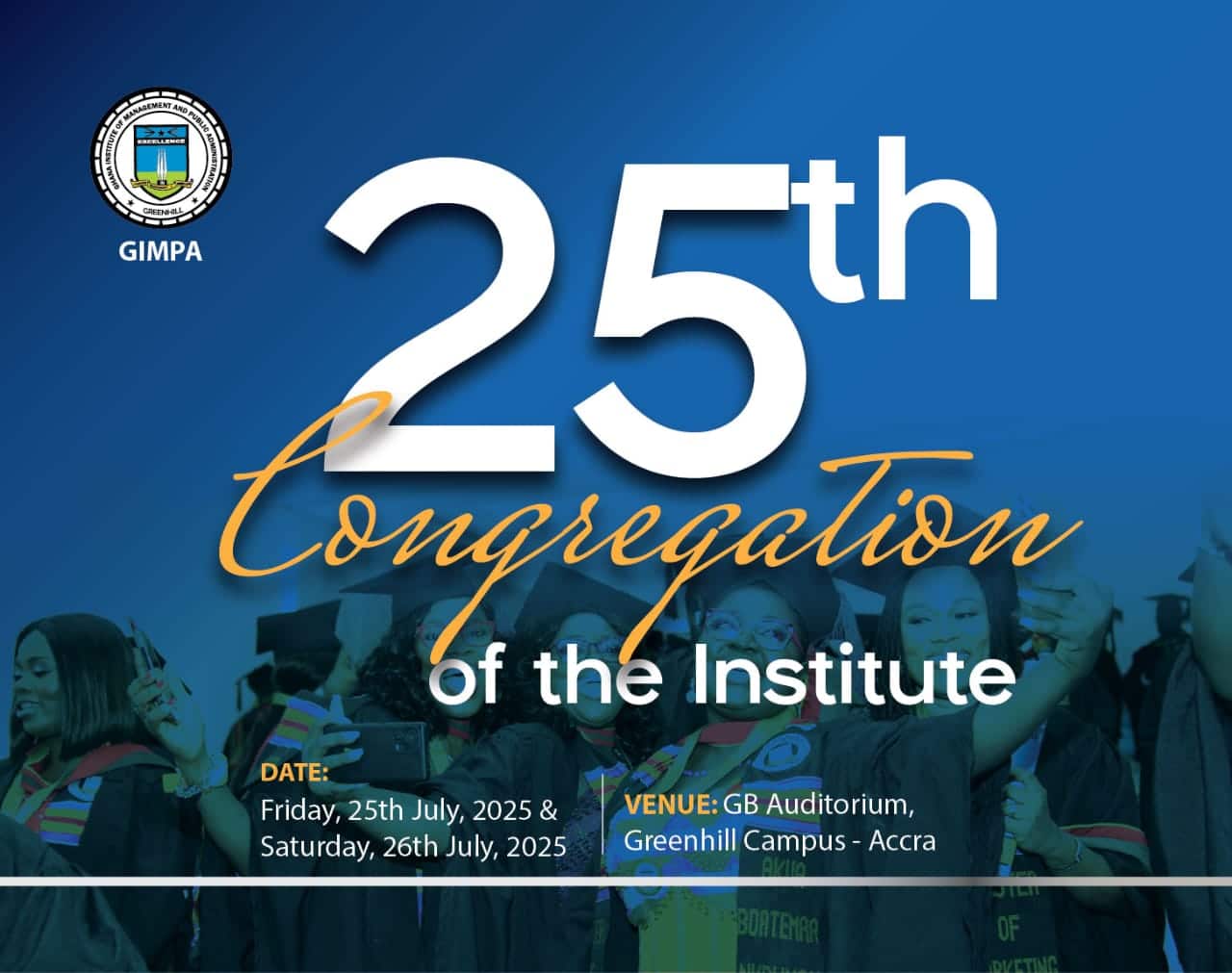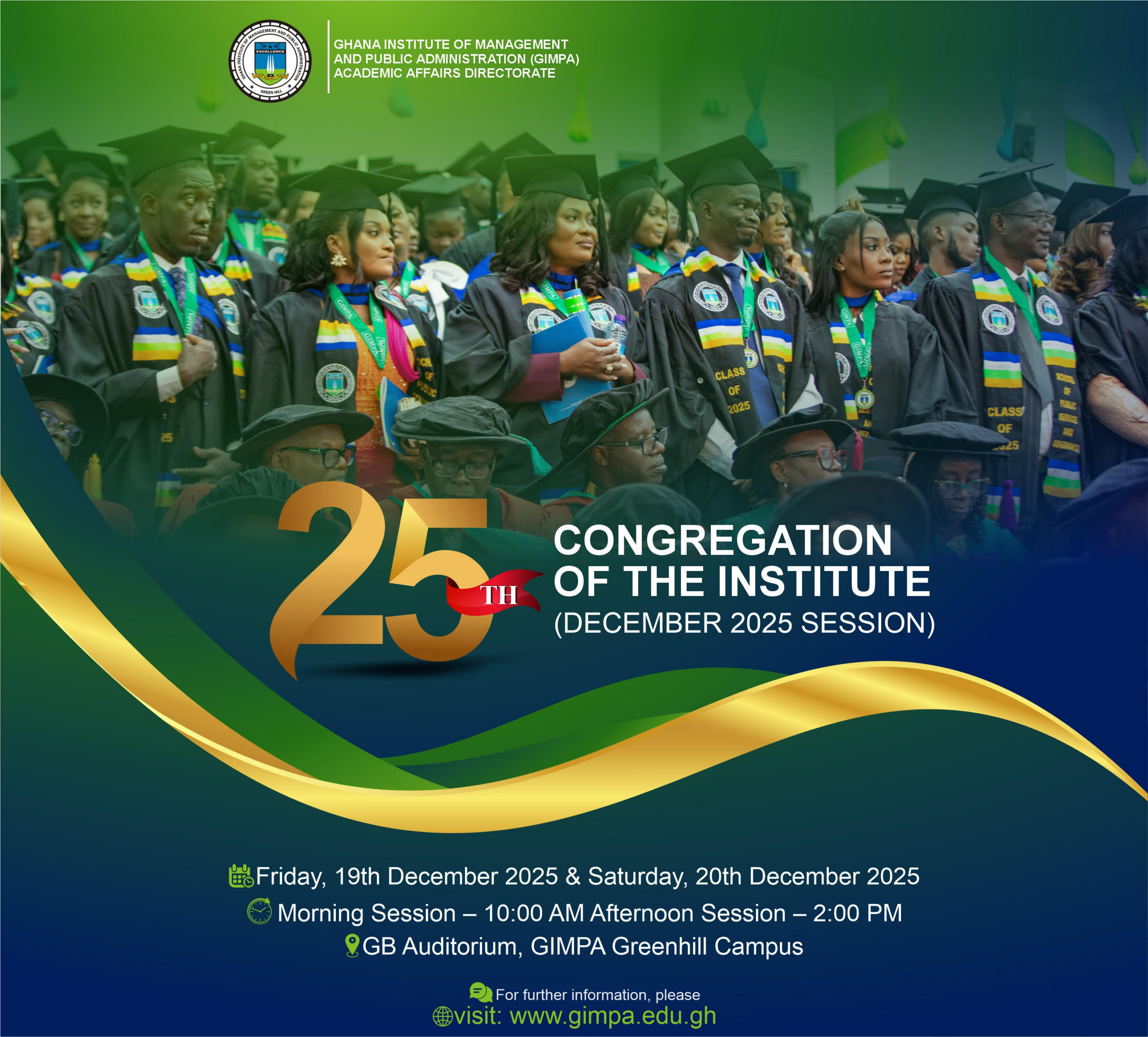School Of Technology
The School of Technology at our institution is committed to delivering a comprehensive and cutting-edge education in the field of technology. Our primary focus is to equip students with the skills and knowledge necessary to excel in today’s rapidly evolving technological landscape. We offer a wide range of programs and courses designed to provide a solid foundation in various technology disciplines.
School Of Technology
The School of Technology at our institution is committed to delivering a comprehensive and cutting-edge education in the field of technology. Our primary focus is to equip students with the skills and knowledge necessary to excel in today’s rapidly evolving technological landscape. We offer a wide range of programs and courses designed to provide a solid foundation in various technology disciplines.

Dean’s Message

Prof. Samuel Agyei-Ampomah
Ag. Dean, School of Technology
Departments of School of Technology

Department of Information Systems And Innovation, School of Technology
Academic Programmes
Undergraduate Programmes
Department of Information Systems and Innovation
BSc. Management Information Systems
Department of Computer Sciences
BSc. Computer Science
This is a four-year programme, which aims to equip graduates with strong and broad technical skills and knowledge to take on appropriate positions pertaining to Computer Science and to some extent Information Technology and other related technology-oriented positions upon graduation and grow into leadership positions or to pursue research or graduate studies in the field. In the course of the program, students who are not already employed in Computer Science or Technology-related areas would undergo industrial attachments along with organized field trips. In the course of the progamme, students who are not already employed in Technology related areas would undergo industrial attachments along with organized field trips.
Programme highlights: Computer Programming, Data Structures and Algorithms, Data Communication and Networking, Software Engineering, Artificial Intelligence, Robotics, among others. Programme coordinator: N/A ADMISSION REQUIREMENTS:Applicants must meet any of the following minimum requirements: 1. Senior Secondary School Certificate Examinations (SSSCE), West African Senior School Certificate Examination (WASSCE) and General Business Certificate Examination (GBCE) The general requirements for admission of WASSCE, SSSCE and GBCE candidates to first degree programmes are three (3) credit passes in three core subjects and three (3) credit passes in three relevant elective subjects.
1. SSSCE Candidates: Credit Passes (A-D) in six (6) subjects comprising three core subjects, including English Language and Mathematics, and any three (3) elective subjects. 2. WASSCE Candidates: Credit Passes (A1-C6) in six (6) subjects comprising three core subjects, including English Language and Mathematics, and any three (3) elective subjects. 3. GBCE Candidates: Credit Passes (A-D) in six (6) subjects comprising three core subjects including English Language and Mathematics and any three (3) elective subjects. 2. General Certificate of Education (GCE) Advanced Level Candidates Passes in three (3) subjects (at least, one of the passes should be Grade D or better). Also, the applicant must have had credit passes (Grade 6) in five GCE Ordinary Level subjects including English Language, Mathematics and a Science subject (for non-science students) and an Arts subject (for Science students). 3. HND holders in Computer Science/Engineering, Electrical/Electronic Engineering, Information Technology (i.e. at least 2nd Class Lower Division) may be admitted to Level 200 or 300. Those who are awarded with 2nd Class Upper and 1st Class Divisions may be admitted to Level 300. Those who are awarded with 2nd Class Lower Division will be admitted to Level 200. HND holders in areas other than Computer Science/Engineering (irrespective of their classes) would not be admitted beyond Level 200 Other Diploma qualifications from elsewhere assessed to be equivalent to HND may be similarly considered. 4. Advanced Business Certificate Examination (ABCE) Candidates Full Diploma Certificate in ABCE. Also, the applicant must have had credit passes in five (5) subjects including English Language, Mathematics, Integrated Science or Social Studies in the General Business Certificate Examination (GBCE) or Senior Secondary School Certificate Examination (SSSCE) or West African Senior Secondary School Certificate Examinations (WASSCE). ABCE candidates who took the Information Technology option may be considered for admission to level 200 of a degree programme. 5. Mature Students must be at least 25 years at the time of applying and must write a qualifying exam and score an average of 50% in it. They must also have relevant working experience plus credit passes in Mathematics and English. 6. Certificate in Information and Communication Technology from GIMPA with an average score of not less than 55%. They must equally satisfy the requirements above for entering a tertiary institution. 7. Diplomas/Certificates from local and foreign institutions authenticated by the National Accreditation Board (NAB). For applications to pursue BSc Computer Science, a credit pass in Elective Mathematics will be required. All other certificates and any other qualification beyond the ones specified above would be referred to the GTEC for the establishment of their equivalences, to determine their eligibility for admission to the university.BSc. Information and Communication Technology
This is a four-year programme primarily informed by Information and Communication Technology (ICT) knowledge generation and the application of such knowledge in developing competency skills. It takes scientific approach to the study of ICT; and is therefore guided principally by the understanding and application of theory. Thus, students will be well-prepared to pursue Masters degrees, and also to take a scientific approach to new ICT development and management in the industrial world.
Programme highlights: IT Entrepreneurship & Leadership, Wireless Networks, Information Technology Auditing, Human Computer Interaction, Mobile Programming, Data Communication and Networking, among others. Programme coordinator: N/A ADMISSION REQUIREMENTS:Applicants must meet any of the following minimum requirements: 1. Senior Secondary School Certificate Examinations (SSSCE), West African Senior School Certificate Examination (WASSCE) and General Business Certificate Examination (GBCE) The general requirements for admission of WASSCE, SSSCE and GBCE candidates to first degree programmes are three (3) credit passes in three core subjects and three (3) credit passes in three relevant elective subjects.
1. SSSCE Candidates: Credit Passes (A-D) in six (6) subjects comprising three core subjects, including English Language and Mathematics, and any three (3) elective subjects. 2. WASSCE Candidates: Credit Passes (A1-C6) in six (6) subjects comprising three core subjects, including English Language and Mathematics, and any three (3) elective subjects. 3. GBCE Candidates: Credit Passes (A-D) in six (6) subjects comprising three core subjects including English Language and Mathematics and any three (3) elective subjects. 2. General Certificate of Education (GCE) Advanced Level Candidates Passes in three (3) subjects (at least, one of the passes should be Grade D or better). Also, the applicant must have had credit passes (Grade 6) in five GCE Ordinary Level subjects including English Language, Mathematics and a Science subject (for non-science students) and an Arts subject (for Science students). 3. HND holders in Computer Science/Engineering, Electrical/Electronic Engineering, Information Technology (i.e. at least 2nd Class Lower Division) may be admitted to Level 200 or 300. Those who are awarded with 2nd Class Upper and 1st Class Divisions may be admitted to Level 300. Those who are awarded with 2nd Class Lower Division will be admitted to Level 200. HND holders in areas other than Computer Science/Engineering (irrespective of their classes) would not be admitted beyond Level 200 Other Diploma qualifications from elsewhere assessed to be equivalent to HND may be similarly considered. 4. Advanced Business Certificate Examination (ABCE) Candidates Full Diploma Certificate in ABCE. Also, the applicant must have had credit passes in five (5) subjects including English Language, Mathematics, Integrated Science or Social Studies in the General Business Certificate Examination (GBCE) or Senior Secondary School Certificate Examination (SSSCE) or West African Senior Secondary School Certificate Examinations (WASSCE). ABCE candidates who took the Information Technology option may be considered for admission to level 200 of a degree programme. 5. Mature Students must be at least 25 years at the time of applying and must write a qualifying exam and score an average of 50% in it. They must also have relevant working experience plus credit passes in Mathematics and English. 6. Certificate in Information and Communication Technology from GIMPA with an average score of not less than 55%. They must equally satisfy the requirements above for entering a tertiary institution. 7. Diplomas/Certificates from local and foreign institutions authenticated by the National Accreditation Board (NAB). For applications to pursue BSc Computer Science, a credit pass in Elective Mathematics will be required. All other certificates and any other qualification beyond the ones specified above would be referred to the GTEC for the establishment of their equivalences, to determine their eligibility for admission to the university.BSc. Health Informatics
Diploma Programmes
Diploma in Applied Computer Science
Graduate Programmes
Department of Information Systems and Innovation
Master of Science in Digital Forensics and Cybersecurity
The principal aim of this MSc Digital Forensics and Cyber Security programme is to impart knowledge on analysis, assessment and minimisation of cyber security risk and, effective ways to extract and use digital information from a wide range of computerised systems and devices. The programme also explores the central legal issues in generation, analysis and use of digital evidence and their implications on security, information privacy and data protection. Programme Highlights: Cybercrime and Risk Management, Digital Forensics, Information Technology Audit, Database and Programming, Legal Aspects of Information Technology, and Cryptography and Security Mechanisms. Duration: One (1) Year Offering mode: Weekends Programme Coordinator: Dr. Joseph Budu E-mail: josbudu@gimpa.edu.gh
Admission requirementsApplicants must have a minimum of Second Class Lower Bachelor’s degree in computing, information systems, or electronic engineering, or any other related discipline from an accredited University. Applicants with degrees from non-computing related fields must first take and pass the post-graduate diploma in Information Technology offered at the School of Technology, GIMPA. A complete application pack must include: • A completed GIMPA application form; • Official transcripts of the applicant’s previous academic record at the university level; • Full curriculum vitae • A statement of purpose; • Three letters of recommendation commenting on the applicant’s ability to pursue the programme
Master of Science in Management Information Systems
The programme will touch on the main tenets of MIS – analysis, development, implementation and management – and their applications in business/public administration. MIS will be discussed in terms of its strategic value and challenges as they are adopted and deployed by both public and private sector organisations. Modules in the programme will delve into the particular dimensions of the tenets with the aim of evaluating alternative methodologies, and philosophies in each of them. It will also aim at discussing these methodologies and the suitability of their applications in the contexts of public and private sector organisations.
Duration: Two(2) Year Offering mode: Evening and Weekends Programme Coordinator: Dr. Joseph Budu E-mail: josbudu@gimpa.edu.gh Admission requirements One or both of the following:1. Applicants who hold undergraduate degrees a) They must have a Bachelor’s degree from an accredited university. b) Those with a minimum of second class upper degree may be admitted directly after their Bachelor’s degree. c) Those with a grade below second class upper degree should have a minimum of two years work experience. d) They may come from a variety of backgrounds but must have basic knowledge and skills in information technology. e) A formal interview may be used to determine all applicants’ ability to take and pass the most technical courses of the programme.
2. Graduates of GIMPA Post-Graduate Diploma in Management Information Systems who meet requirements a) and b) below will be admitted into the programme and exempted from taking the following courses: • Organisational Study of Information Systems • Information Risk and Security a) They must pass each of the following courses in the Diploma programme with a grade point average of 3.50 or better: • Foundations of MIS • Information Systems Security They must obtain a cumulative grade point average of 3.50 or betterMaster of Philosophy in Management Information Systems (MPhil)
The programme will touch on the main tenets of MIS – analysis, development, implementation and management – and their applications in business/public administration. MIS will be discussed in terms of its strategic value and challenges as they are adopted and deployed by both public and private sector organisations. Modules in the programme will delve into the particular dimensions of the tenets with the aim of evaluating alternative methodologies, and philosophies in each of them. It will also aim at discussing these methodologies and the suitability of their applications in the contexts of public and private sector organisations. The following modules will define the programme: Duration: Two (2) Years
Offering mode: regular (day) Programme Coordinator: Prof. Gamel Wiredu E-mail: gwiredu@gimpa.edu.gh Admission requirements: 1. Applicants who hold undergraduate degrees a) They must have a Bachelor’s degree from an accredited university. b) Those with a minimum of second class upper degree may be admitted directly after their Bachelor’s degree. c) Those with a grade below second class upper degree should have a minimum of two years work experience. d) They may come from a variety of backgrounds but must have a basic knowledge and skills in information technology. e) A formal interview may be used to determine all applicants’ ability to take and pass the most technical courses of the programme. 2. Graduates of GIMPA MSc in Management Information Systems: a) must obtain a FGPA of 3.0 or more b) will be exempted from all Year One courses 3. Graduates of GIMPA Post-Graduate Diploma in Management Information Systems who meet requirements a) and b) below will be admitted into the programme and exempted from taking the following courses: ● Organisational Study of Information Systems ● Information Risk and Security a) They must pass each of the following courses in the Diploma programme with a grade point average of 3.50 or better: ● Foundations of MIS ● Information Systems Security b) They must obtain a cumulative grade point average of 3.50 or better.Postgraduate Programmes
PG. Dip.(MIS) Management Information System
Department of Computer Sciences
MSc /MPhil Information and Communication Technology
Today, it is difficult to think of an individual, group, organization or nation that is not being affected by Information and Communication Technology (ICT). ICT is no longer a sidestream issue but a mainstream one that must be confronted and understood for socio-economic development, for business strategising, for personal organisation, and for enhanced group collaboration. The programme equips students with scientific knowledge for analytical thinking in ICT development and management.
Programme highlights: Information and Network Security, Decision Support Systems, Software Engineering, Wireless Network Architecture and Design, Data Communications and Networks, Artificial Intelligence Applications, among others. Duration: two (2) years Offering mode: weekends and Evening Programme coordinator: N/A Admission requirements- Applicants must have a minimum of 2nd Class Lower Bachelor’s degree in ICT, Computer Science or ICT-related discipline from an accredited university.
- A formal interview shall be conducted for applicants with other backgrounds to determine the ability of all applicants to take and pass the most technical courses of the programme.
MSc Information Technology and Law
This MSc Information Technology and Law (IT & Law) programme is intended to equip students with critical understanding of the legal and administrative implications on adoption, implementation and use of ICT innovation, and information privacy, security and aspects of law that are most relevant to the work of IT-professionals.
Programme highlights: Legal Environment & Commercial Law, Digital Media and Intellectual Property Law, Computer Forensics and Cybercrime Investigation, Internet Governance and ICT Regulation, Electronic Transactions Law, Information Privacy and Data Protection, among others.
Duration: two (2) years
Offering mode: weekends and Evening
Admission requirements
- Applicants must have a minimum of 2nd Class Lower Bachelor’s degree in ICT, Computer Science or ICT-related discipline from an accredited university.
- A formal interview shall be conducted for applicants with other backgrounds to determine the ability of all applicants to take and pass the most technical courses of the programme.
MSc Applied Mathematics (Industrial Analytics)
Recent developments in technology have affected most fields ranging from biology to finance. They generate enormous amounts of data that can be mined to understand natural phenomena and also to predict future behaviours of systems. Collaborations with experts in the analytical fields serve this purpose. The programme, Applied Mathematics, provides the interface where analytics is integrated into the specialized domain knowledge to solve practical problems in the various fields.
Programme highlights: Management Science Stochastic Processes, Statistical Modelling, Database and Programming, Mathematics for Industry, Computer Solutions and Modelling, Differential Equations and Applications, Numerical Analysis, among others Duration: one (1) year Offering mode: weekends and Evening Admission requirements- Applicants must have a minimum of Second Class Lower Bachelor’s degree in Mathematics, Statistics, Actuarial Science, Engineering, Computer Science, Physics or any other mathematically-related discipline from an accredited University.
- A formal interview shall be conducted for applicants with other backgrounds to determine the ability of all applicants to take and pass the most technical courses of the programme.
Postgraduate Programmes
PG.Dip.(ICT) Information and Communication Technology
Admissions
With over 6,000 students enrolled in six schools for undergraduate and graduate studies, prospective student interest continues to rise.
Want to Study at GIMPA?
- The online application platform can be accessed by clicking Apply Now button.
- Application payment can be made at any Consolidated Bank Ghana (CBG) nationwide using your application generated upon completion of the online application (new application fees will be applied).
- International Students will pay $100.00 for the application fee with VISA card.
- Applicants must note that the admission process to GIMPA is very transparent. Applicants should therefore beware of any persons who may approach them on the pretext of assisting them gain admission at a fee.
Frequently Asked Questions
Where can I get application forms?
How much is the application fee?
- Application fees are as follows:
Masters/Postgraduate Diploma: GHc250 - Bachelors (including WASSCE LL.B)/Diploma: GHc200
- International Students: US$100
What number can I call for enquiries?
The main numbers for the school are +233-(0) 501620138, +233-(0) 332095432, +233-(0) 302908076, +233-302-401681-3</br>
Email: sot@gimpa.edu.gh
Email: admissions@gimpa.edu.gh
Mobile/WhatsApp: 050 140 8298, 050 466 9564, 024 422 9931, 024 626 4300
What is the duration of your degree programmes?
- Undergraduate programmes are usually 4 years.
- Masters programmes are for 1 or 2 years, depending on the programme.
- Post Graduate Diploma programmes are usually a year.
- However, you are encouraged to confirm with your prospective secretariat as some programmes may have a unique timeline.





